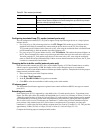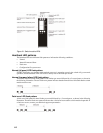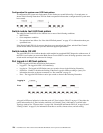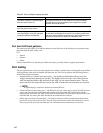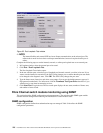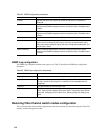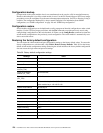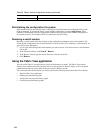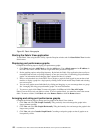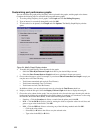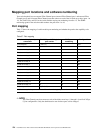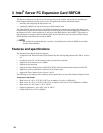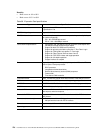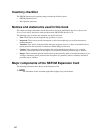
120 Intel Blade Server Fibre Channel Switch Module SBCEFCSW / FC Expansion Card SBFCM Guide
Configuration backup
Changes made to the switch module since it was manufactured can be saved to a file in nonvolatile memory.
However, the backup file is lost if the switch module is reset. Use the File Transfer Protocol (FTP) user images
procedures to save the configdata file to the network management workstation. (In FTP, no directory listing is
available. The configuration backup file is always named configdata.) For information about SNMP
configuration, see “SNMP configuration” on page 118 and “SNMP trap configuration.”
Configuration restore
Switch module configurations can be duplicated to easily propagate an identical configuration to other switch
modules. Use the FTP User Images procedures with the Put command to send the previously saved (using
config backup) configdata file to the switch module. In Telnet, use the Config Restore command to return the
switch module configuration to the previously saved configuration. The switch module is automatically reset
after a successful restore.
Restoring the factory default configuration
You can restore the switch module and port configuration settings to the factory default values. To restore the
factory configuration on a switch module, click Switch / Restore Factory Defaults. Table 36 lists the factory
default switch module configuration settings. Restoring the switch module to the factory default configuration
does not restore the login name and password settings.
Table 36. Factory default configuration settings
Settings Value
Module name Fibre Channel switch module
Administrative state Online
Domain ID 1
Resource allocation time
out (RA_TOV)
10000 milliseconds
Receiver transmitter
timeout (RT_TOV)
100 milliseconds
Error detect timeout
(ED_TOV)
2000 milliseconds
IP address Switch module bay 3: 192.168.70.129
Switch module bay 4: 192.168.70.130
Subnet mask address 255.255.255.0
Gateway address 10.90.90.254
Boot method Static
Contact Undefined
Location Undefined
Trap address Trap 1: 10.0.0.1, Traps 2–5: 0.0.0.0
Trap community Public
Read community Public
Write community Private
Port state Online - external ad internal ports
Port speed Auto-detect - external; 2G - internal



